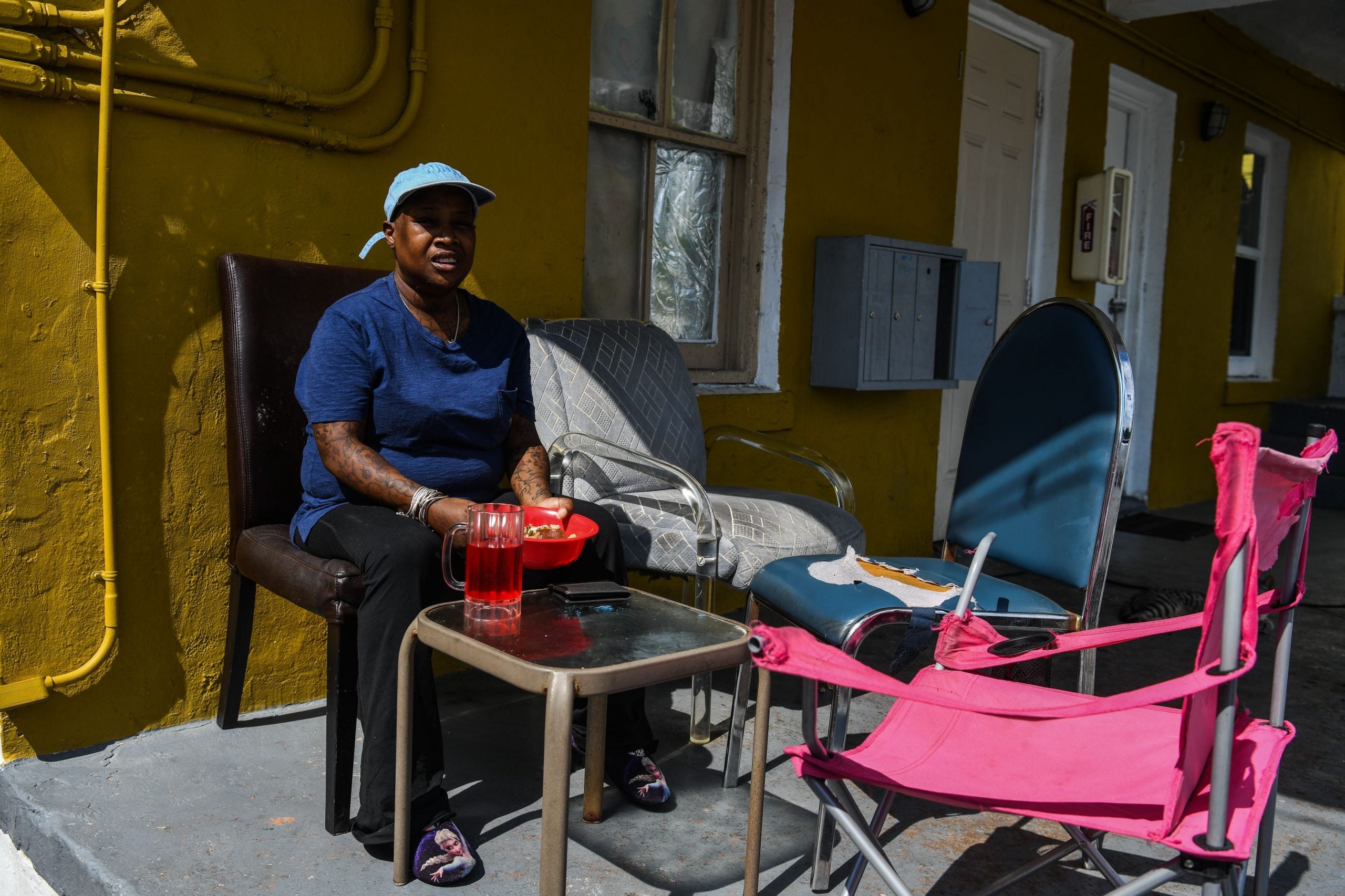As the reality of the COVID-19 pandemic began to sink in, the picture of what it could mean for Black communities across the United States became clearer. Alarming early data showed the staggering rate at which the virus was killing Black people. There was also the simple fact that many Black people could not afford the simple luxury of taking a sick day to care for ourselves, regardless of whether or not it was due to the novel coronavirus. As the pandemic continues, these conditions have dramatically worsened.
A new report from McKinsey & Company, a management consulting firm, shows just how much of an additional strain COVID-19 puts on Black communities. The analysis has shown that, as a demographic, Black Americans have worse health outcomes, are less likely to have access to wealth-building resources, are more likely to live in under-resourced communities, and are overrepresented in the lower wage, “essential” jobs that would put them directly in the line of fire for the virus, among other racialized disparities.
The study also shows that Black Americans are 1.4 to 1.8 times as likely to live in the counties that—based on underlying health conditions, poverty rate, hospital beds, percentage of people in severe housing conditions, and population density—are at highest risk of economic and public health disruption due to the COVID-19 pandemic. The counties at highest risk are home to only 10% of the US population, but home to 18% of the nation’s Black population.
Black Americans, the study notes, are likely to be impacted negatively across every stage of the wealth-building journey as a direct result of this virus. At least 7 million jobs, which make up 39% of the jobs held by Black workers, are now at risk for temporary or permanent disruption—either through reductions of hours or pay, furloughs, and/or layoffs. In addition, Black Americans are overrepresented in nine of the ten lowest-wage jobs that are considered high-contact, essential services, i.e. nursing assistants, orderlies, and psychiatric aides.

These economic circumstances translate into elevated risks of contracting COVID-19, the study adds, with only about 20% of Black workers being able to work from home (as compared to 30% of white workers and 37% of Asian workers.)
These projections, while devastating, come as little to no shock to anyone who acknowledges the systemic obstacles and discrimination that Black Americans face on a daily basis.
As grim as the data is, report co-authors Jason Wright and Shelley Stewart III, both partners at McKinsey, stress that, now, is a critical time to invest in Black communities, to not only ensure equitable recovery but, also, to help boost Black economic power.
Imagining And Creating Healthy Black Futures
“It’s by no means like a hooray narrative,” Wright tells ESSENCE. “It is still weighed down by the real crisis that is hitting the country and Black America in particular. That said, a lot of the solutions are related to the economic, geographic, and other disadvantages that are affecting Black America writ large. Those are…the same things that are causing disproportionate impact of COVID on Black communities.”
“Anything that is going to help Black people navigate through COVID in a healthy way, both physically and economically, is also going to help black people economically in the future in terms of the economic development of the entire community and the closing the racial wealth gap,” Wright added.

A prime example of this, Wright points out, is access to reliable broadband internet and a personal computer often thought as a simple, basic need in our modern world. Yet, the data collected by McKinsey shows that some 36% of Black households do not have access to either broadband internet or a computer. Meanwhile, some 21% of white households and nearly 12% of Asian households do not have access, by comparison.
This simple lack of access, Wright notes, is especially important because as a result, in the world of COVID-19, Black households without internet or computer access will not have access to telemedicine for both non-coronavirus related and coronavirus-related issues, many of which are being addressed online to avoid crowding emergency rooms and to help screen patients.
Additionally, all education from K-12 through to university has essentially moved online for the foreseeable future. Young children and college students alike without access to the internet or a computer could fall behind, unable to do their coursework or take a test.
“That widens an already wide gap that is…the fruit of historical discrimination,” Wright pointed out.
And for those already in the workplace, that could mean being furloughed or fired due to the lack of infrastructure to remain productive, which could lead to individuals being less likely to be re-hired post-pandemic if a large portion of the work remains online.
“There are a myriad factors to this historical disinvestment, and it applies to both urban communities and rural communities,” he said. “I’m not just talking about the rural south; there are also Black neighborhoods in New York that have less access to broadband and reliable internet. It’s a real issue.”
Invest Black
All this brings us to the need for investment in Black communities. Real investment, not only from the government but from the private sector, including: accessible health agencies, ensuring equal access to COVID-19 testing for Black Americans, and deploying health care workers to communities where the demand for healthcare far outweighs the supply. This investment in Black communities could also look like employers providing Black workers in essential roles with hazard pay that reflects the risk of their jobs, as well as financial services, whose presence in majority-Black neighborhoods often trail behind their presence in other neighborhoods.
Financial technology (FinTech) such as digital banking has begun to resolve some of those issues, still, Stewart notes, “there’s also still a brick-and-mortar component…that needs to be considered and addressed.”

There are also other issues, such as increasing inclusion in businesses.
“When you get more diversity in the branches, in the corporate offices, then you get more robust thinking around how to address certain communities,” Stewart said.
There is also the support that could be offered to Black businesses often overlooked in the grand scheme of things.
“There are already existing entities, the National Minority Supplier Diversity Council and others, who have a list, who tell you what products [Black businesses] provide, that tell you what products they provide, what capabilities they have, what scale are they capable of,” Wright said. “It is very easy to get them into the deal flow with large corporations and the government itself. There’s a lot that needs to be done. Medical distribution is booming right now. There are Black medical distribution companies…There is a way to get them into the deal for who they are often overlooked. Actually, they could quite capably compete even on a price base with larger vendors.”
This just scratches the surface on the types of investments that can be done, that are laid out in the study, and yet the benefits of that investment will not only uplift the entire Black community but the country as a whole.
“There’s a lot to be gained from…increasing economic empowerment for Black Americans and frankly for other populations that disproportionately suffer from lower socioeconomic status,” Wright said.
And if investments in the Black community means that everyone feels the positive impacts, that means that the reverse is also true: that the boost the country will need following the pandemic will be stunted if nothing is done to address the glaring racial disparities.







“It’s in the interest of every corporate executive. It’s in the interest of every small business owner. It’s in the interest of every state and local politician, as well as federal politicians. It’s in the interest of those who run NGOs and nonprofits. It’s in the interest of schoolteachers. It’s in the interest of everybody that Black people are not overlooked in terms of their economic empowerment, because we do drive an outsized portion of the U.S. economy forward,” Wright added. “We do move markets in a few different categories and consumer goods. There are really important things that will be missing from the recovery and hurt everybody if this doesn’t happen.”
—
ESSENCE is committed to bringing our audience the latest facts about COVID-19 (coronavirus). Our content team is closely monitoring the developing details surrounding the virus via official sources and health care experts, including the World Health Organization (WHO), the Centers for Disease Control and Prevention (CDC) and the Occupational Safety and Health Administration (OSHA). Please continue to refresh ESSENCE’s informational hub for updates on COVID-19, as well as for tips on taking care of yourselves, your families and your communities.


